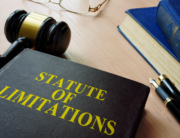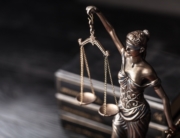Yes, you can sue for premises liability, whether you are a tenant or a visitor on someone else’s property, depending on the facts of your case.
The Property Owner’s Liability to Tenants Injured on the Premises
We must prove these elements to establish the property owner’s liability for injury on the premises:
- There was a dangerous or defective condition on the property.
- The property owner knew or should have known of the hazard.
- The property owner did not fix the hazard nor did they post reasonable warnings.
- You sustained an injury because of the hazard.
- You suffered damages as a result of the injury.
For example, a grocery store fails to clean up a spill in a reasonable amount of time. The store also fails to warn shoppers of the spill. One shopper slips and falls, suffering injuries. The store may be liable for the shopper’s damages.
Your Status as a Visitor Affects Your Ability to Sue for Premises Liability
The property owner’s liability will depend on whether you are an invitee, a licensee, or a trespasser.
Invitee
An invitee is on the property for the benefit of the property owner or is on property open to the public. Common examples of an invitee are those on the property to do business with the property owner or who enter a public property, such as a store. Property owners owe invitees a duty of care.
Licensee
A licensee is permitted to be on the property by the property owner but is not on the property for the benefit of the property owner. A common example of a licensee is a social guest at somebody’s home. Property owners owe licensees a duty of care.
Trespasser
A trespasser does not have the property owner’s permission to be on the property. Property owners generally do not owe trespassers a duty of care, but must not intentionally harm them.
One exception, however, is the attractive nuisance doctrine. An attractive nuisance refers to an object on the property that attracts children (e.g., a swimming pool). If the property owner failed to take reasonable measures to prevent access to the attractive nuisance (e.g., a fence around a pool), then the property owner may be liable if the attractive nuisance injured a child trespasser.
The Landlord’s Duty to Tenants
According to the Florida Bar, a landlord has a “duty to provide a home that is safe and meets housing code requirements, and to make reasonable repairs when necessary.” The dwelling must be fit to live in, which includes having:
- Functional plumbing, hot water, and heating
- Reasonable security, including doors and windows that work and lock
- Structural soundness
- Freedom from pests
- Compliance with local health, safety, and building codes
Call the Montero Law Center for Help With a Premises Liability Claim
If you call the Montero Law Center, we will sort out the premises liability issues and help you hold the property owner liable for your injuries.
Call today at 954-767-6500 for help from a premises liability attorney.
 English
English  Español
Español 



